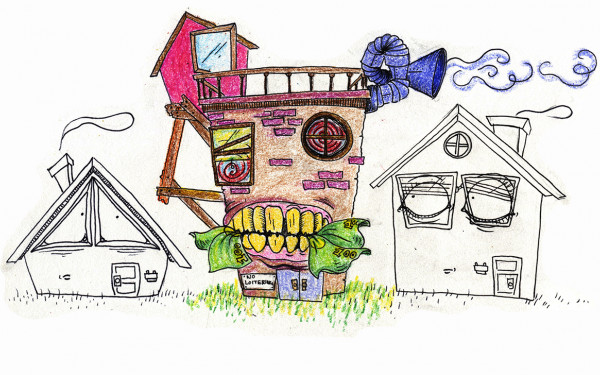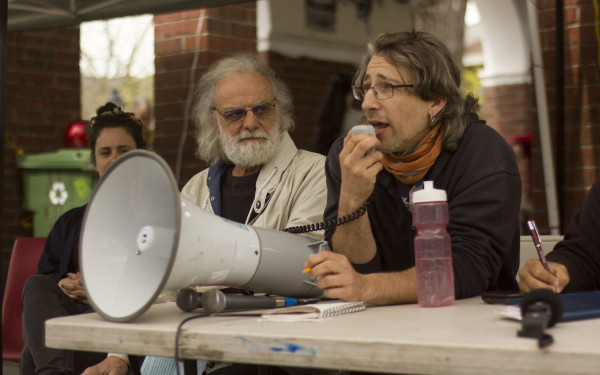Understanding the Anti-Gentrification Attacks in Hochelaga
Anti-gentrification activists took credit for the vandalism of five Hochelaga businesses this week, “three furniture design boutiques, a real estate office, and a yuppie hair salon,” according to an anonymous online communiqué.
We should sympathize with the business owners. The sense of violation and sadness they’re probably feeling is relatable. Negative assumptions and prejudices about the vandals have certainly already been made in the minds of many. Vandalism is wrong, after all.
But the vandals did more than just damage property. They sent a message: stop gentrification. They said the crime was an outcry against the displacement of Hochelaga’s residents by gentrifying businesses and condos. Can they be blamed for the measures that had to be taken just so they could be heard?
In the past few years, Hochelaga has been attracting the attention of potential residents, business owners and developers. This newfound popularity is changing the neighbourhood in ways that are detrimental to Hochelaga natives. Rent prices are rising; shiny, unaffordable businesses are popping up; and the new crowd is ushering in a divergent culture.
Hochelaga has been a modest, working-class neighbourhood for a long time, but Hochelaga residents are being pushed out of their homes as rents rise to unaffordable levels. Réal Ménard, mayor of the Mercier-Hochelaga-Maisonneuve borough, acknowledged recently that Hochelaga needs affordable housing. But the government remains idle rather than acting on the neighbourhood’s housing issues. The acknowledgment means nothing; the victims of the rising housing prices are in no way being compensated by the mayor’s empathetic words. They need action.
Gentrifying businesses gear their products and services towards an affluent clientele. To the low-income folks who make up Hochelaga’s traditional residents, these businesses serve as a reminder of the increasing wealth that is making their neighbourhood unaffordable to live in.
Many old buildings that added character, history and culture to Montreal are being turned into condo blocks. While they are beautiful and have a character of their own, the historic buildings cannot be replaced.
These trends all culminate with affluent individuals taking up residence in what they may view as an up-and-coming, trendy and affordable neighbourhood which, naturally, has led to tensions and conflicts.
The same tension occurs when roles are reversed, despite much less outrage. Why is the Town of Mont-Royal, a rich neighborhood, allowed to construct a border fence to keep out its poor Parc-Extension neighbors? If the rich are allowed to frown on the poor for encroaching on their neighbourhoods, then why can’t the argument be reversed? Those who can afford a more expensive rent may feel entitled to access and transform poor neighborhoods, but that doesn’t mean that they won’t face resistance.
Capitalism shapes and guides every aspect of life today all over the world. Advertisement telling consumers what they want—and that they want more of it—permeates deeply in our culture. As the wealth moves in to Hochelaga, the capitalist culture that it necessarily entails does too.
Though perhaps unintentionally, many of these changes are reforming a neighbourhood home to a distinctly working-class culture. Evidently, the vandals within the community connect with the culture that gentrification is altering and are speaking out against the change.
Gentrification is a result of the greed of capitalism and human desires to dominate. These issues don’t have simple solutions and are more deeply rooted than in a neighbourhood in Montreal.
For now, what the public and those within the Hochelaga community can do is to give the victims a helping hand in rebuilding and putting together what was taken apart. But it’s also important to understand the vandals’ message and empathize with those struggles. Those who have the ability can take non-violent measures to solve gentrification problems. In these ways, everyone can work together to rectify our past mistakes.







3web_600_375_90_s_c1.jpg)